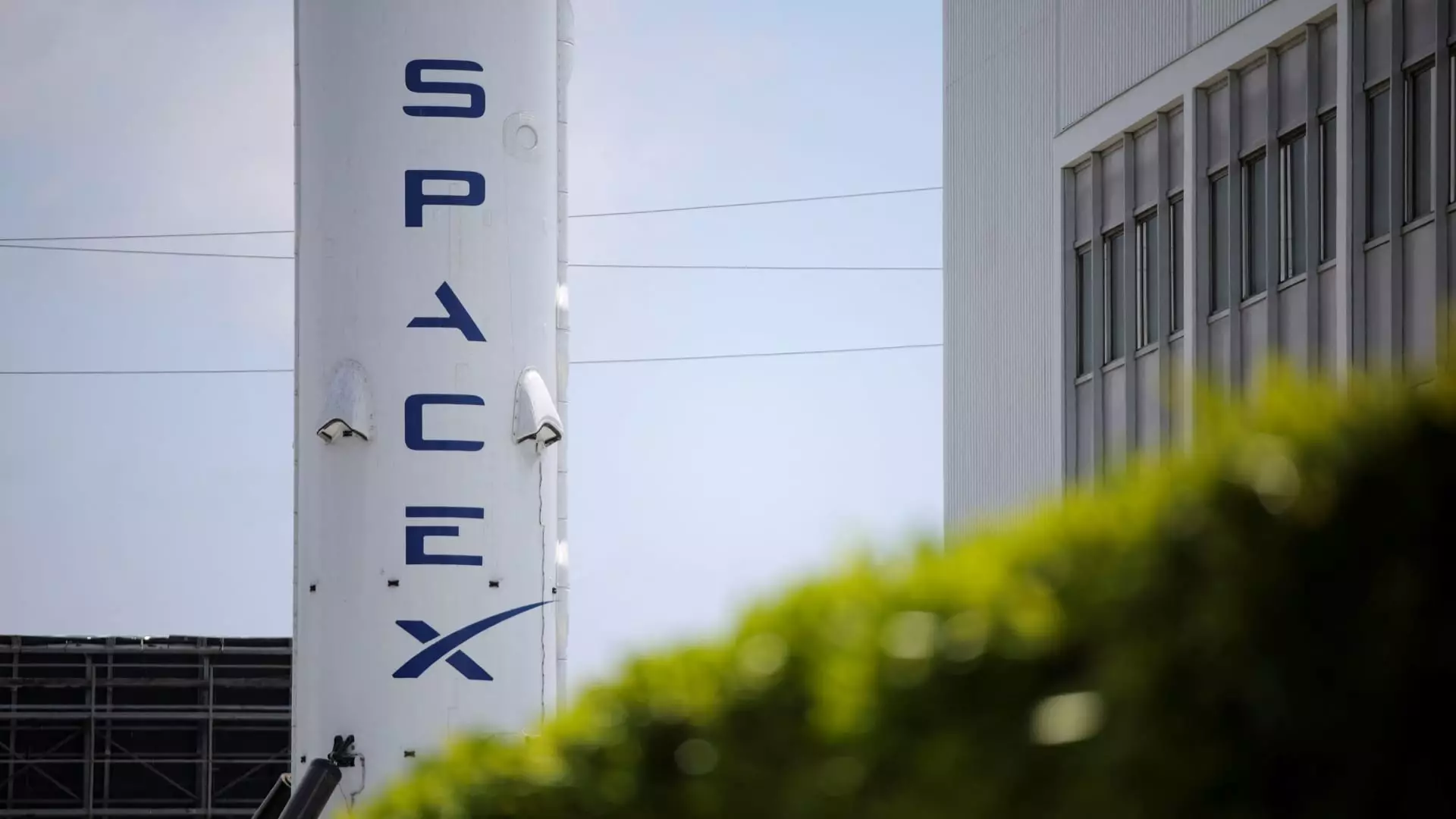In an unprecedented twist of events that highlights the volatile nature of political patronage, the White House has turned its scrutiny towards one of its most high-profile partners in space exploration, Elon Musk. The recent directive from the Trump administration for the Defense Department and NASA to investigate the financial details behind SpaceX’s contracts suggests more than just routine oversight—it signifies a potential political vendetta cloaked under the guise of accountability. This clash between a billionaire businessman and the presidency showcases how personal grievances can jeopardize essential national interests, particularly in the delicate realm of space operations.
For years, Musk and SpaceX have been synonymous with innovation and advancement in aerospace technology, often filling operational gaps left by government inefficiencies. Yet, the recent spat with Trump raises troubling questions: can this relationship withstand personal animosities, or will it unravel under the harsh light of political retaliation? As the president hinted at the possibility of terminating contracts worth billions, it seems that Musk’s provocative remarks have become incendiary enough to ignite a crisis that could have far-reaching implications for U.S. space policy.
The Role of SpaceX in National Security
Musk’s SpaceX has grown to become a linchpin in the U.S. government’s aerospace and defense programs. From launching vital satellites to transporting astronauts via the Dragon spacecraft to the International Space Station, the company’s contributions are undeniable. The crux of the current crisis lies in how much of this operational capability is contingent on the whims of a political landscape riddled with ego and pettiness. Musk’s assertions about Trump—and the ensuing fallout—reveal just how fragile this alliance truly is.
What is particularly alarming is the possibility that personal grievances could dictate national defense priorities. The mere escalating rhetoric between Musk and Trump signifies a shift from rational governance to a realm dominated by personal vendettas. Should the president decide to retaliate against Musk, the consequences could ripple across defense contracts, putting critical security initiatives at risk. As defense experts warn, the intertwining of politics and public service can lead to a scenario where decisions are made based on personal relationships rather than the public good.
The Implications for Innovation and Governance
There is a grave irony in the fact that Musk, a man now facing potential scrutiny for his lucrative contracts, once led an initiative aimed at scrutinizing government spending himself. Such hypocrisy undermines the ideals of transparency and accountability that both sides purport to champion. As the administration embarks on this review, it does so amidst apprehensions that contracts may be influenced not by merit but rather by the personal feelings of political leaders. The fundamental question remains: can unbiased governance thrive when intertwined with personal ambition and, at times, animosity?
Calls for rigorous review processes should not mask underlying motivations driven by political pettiness. Experts in government contracting express concern that subjective judgment based on personal conflicts could redirect valuable resources, potentially undermining national security. The capabilities of SpaceX not only support U.S. military strategies but also enhance America’s standing in the global space race. Retaliatory actions against the company could inadvertently stifle innovation and diminish the robustness of the industrial base that powers the nation’s defense mechanisms.
The Fragility of Power in Politics and Business
What makes this situation particularly poignant is the lingering question of loyalty and dependency. SpaceX is a critical partner of U.S. defense systems, yet it finds itself navigating a highly precarious political landscape—one where the stakes are not merely financial but existential. Faced with the duality of being both a provider and a target, Musk’s recent attempts to moderate his critiques of the president illustrate how deep the intersecting vulnerabilities run.
This situation serves as a cautionary tale about the inherent dangers of blurring the lines between politics and business. The governance of national security should never pivot on interpersonal disputes. Instead, it should focus relentlessly on the best interests of the public while prioritizing innovation and safety. In a time when technological advancements are essential for maintaining a competitive edge in global defense, jeopardizing key partnerships for personal gain is an affront to the ideals of effective governance. The nation deserves better than the toxic mix of ego and power plays.


Leave a Reply